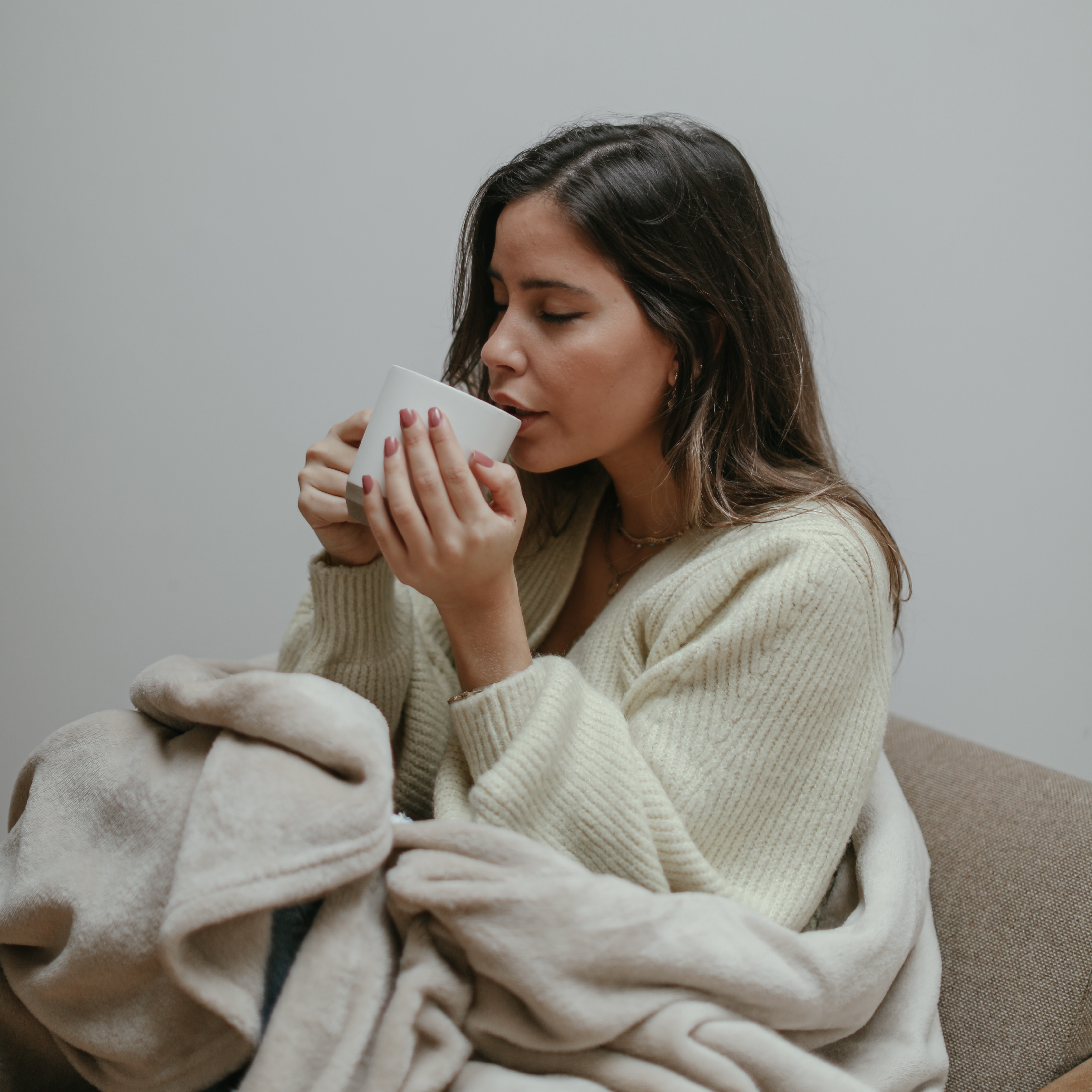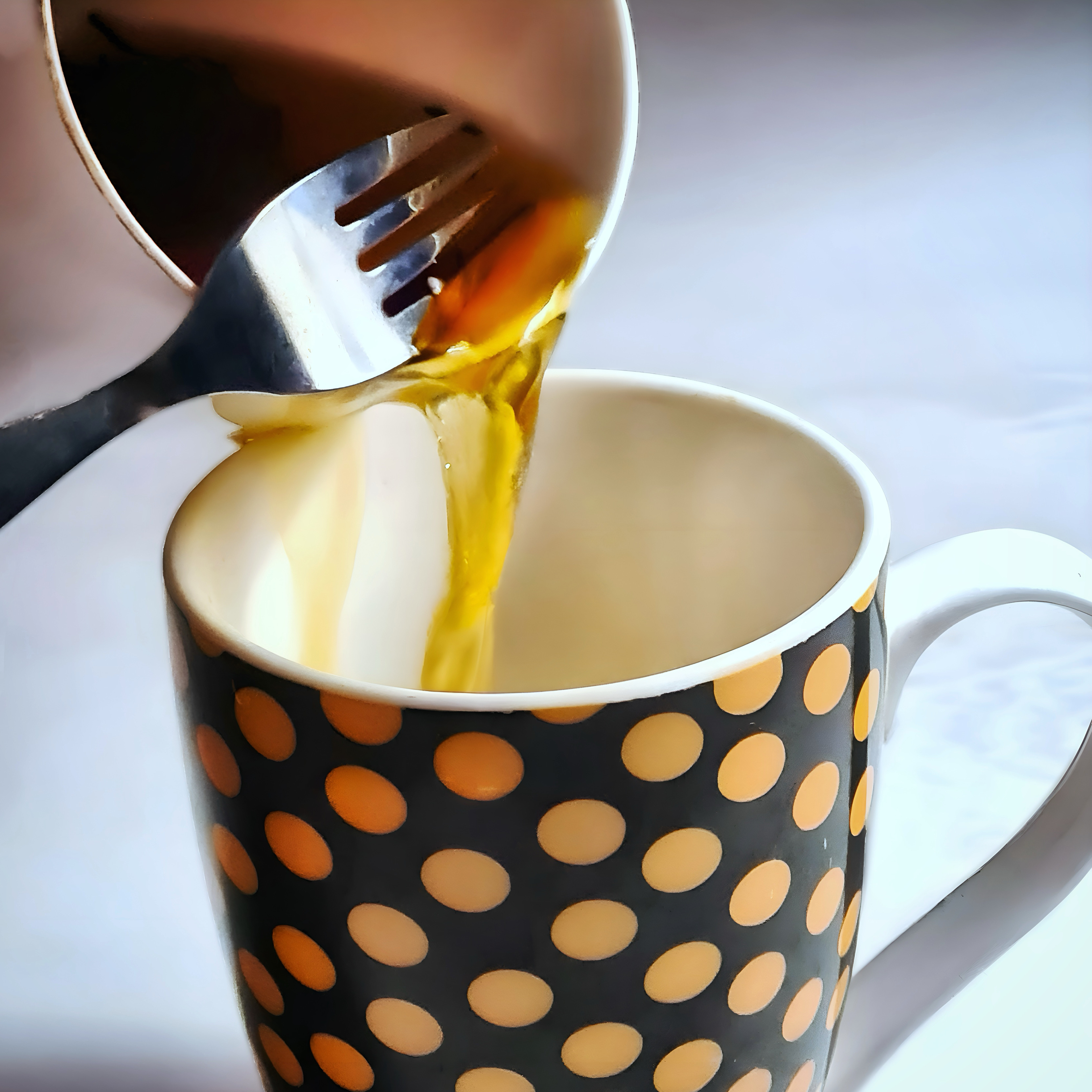Oranges are one of the most popular and versatile fruits in the world. They are delicious, nutritious and easy to find. But did you know that you can also use them with tea to create a zesty and healthy drink? In this article, we will show you how to use oranges with tea in different ways. You will learn how to use the orange itself, the orange peel, orange syrup and more. We will also cover the health benefits of oranges and tea, some tips and tricks to make your drink even better, and some recipes to try at home.

Why Use Oranges with Tea?
Oranges and tea are a perfect match for several reasons. Here are some of them:
- They complement each other in taste. Oranges add a sweet and tangy flavor to tea, while tea balances the acidity of oranges. Together, they create a refreshing and satisfying drink that can be enjoyed hot or cold.
- They boost your immune system. Oranges are rich in vitamin C, which helps your body fight infections and inflammation. Tea, especially green tea, contains antioxidants that protect your cells from damage and disease. By combining them, you get a double dose of immunity-boosting nutrients.
- They improve your mood. Oranges and tea both have mood-enhancing effects. Oranges contain folate, which helps your brain produce serotonin, the happy hormone. Tea contains caffeine and theanine, which stimulate your brain and reduce stress. By drinking them together, you can feel more energized and relaxed.
- They are easy to prepare. You don’t need any fancy equipment or ingredients to use oranges with tea. All you need is some fresh or dried oranges, some tea bags or loose leaf tea, some water and a kettle or a pot. You can also add some honey, sugar or other sweeteners if you like.
How to Use Oranges with Tea
There are many ways to use oranges with tea. Here are some of the most common ones:
1. Using the Orange Itself
The simplest way to use oranges with tea is to squeeze some orange juice into your cup of tea. You can do this with any kind of tea, but black tea and green tea work especially well. You can also add some orange slices or wedges to your cup or teapot for extra flavour and decoration.
To make orange tea with fresh orange juice, follow these steps:
- Boil some water in a kettle or a pot.
- Cut an orange in half and squeeze one half into a cup or a jug. You can use a juicer or a fork to do this.
- Put a tea bag or some loose leaf tea into another cup or a teapot.
- Pour the boiling water over the tea and let it steep for 3 to 5 minutes, depending on how strong you like your tea.
- Pour the tea into the cup or jug with the orange juice and stir well.
- Enjoy your orange tea hot or cold.
You can also make orange tea with dried orange slices or peels. These are available in most supermarkets or online shops. You can also make them yourself by drying fresh orange slices or peels in an oven or a dehydrator.
To make orange tea with dried orange slices or peels, follow these steps:
- Boil some water in a kettle or a pot.
- Put some dried orange slices or peels into a cup or a teapot.
- Put a tea bag or some loose leaf tea into another cup or a teapot.
- Pour the boiling water over the tea and the dried oranges and let them steep for 5 to 10 minutes, depending on how strong you like your tea.
- Strain the tea and the dried oranges into another cup or jug and discard the solids.
- Enjoy your orange tea hot or cold.
2. Using the Orange Peel
Another way to use oranges with tea is to use the orange peel instead of the juice or the flesh. The orange peel contains more vitamin C than the juice and has a more intense flavour. It also adds a nice aroma to your drink.
To use the orange peel with tea, you can either zest it or peel it. You will need a grater or a zester tool that can scrape off the thin outer layer of the peel without getting any of the bitter white pith underneath. Additionally, when peeling an orange peel, you should use a sharp knife or a peeler that can cut off thin strips of the peel without getting any of the bitter white pith underneath.
You can use either fresh or dried orange peel with tea:

To make orange peel tea with fresh orange peel, follow these steps:
- Boil some water in a kettle or a pot.
- Zest or peel an orange and put the zest or peel into a cup or a teapot.
- Put a tea bag or some loose leaf tea into another cup or a teapot.
- Pour the boiling water over the tea and the orange peel and let them steep for 5 to 10 minutes, depending on how strong you like your tea.
- Strain the tea and the orange peel into another cup or jug and discard the solids.
- Enjoy your orange peel tea hot or cold.
To make orange peel tea with dried orange peel, follow these steps:
- Boil some water in a kettle or a pot.
- Put some dried orange peel into a cup or a teapot.
- Put a tea bag or some loose leaf tea into another cup or a teapot.
- Pour the boiling water over the tea and the dried orange peel and let them steep for 10 to 15 minutes, depending on how strong you like your tea.
- Strain the tea and the dried orange peel into another cup or jug and discard the solids.
- Enjoy your orange peel tea hot or cold.
3. Using Orange Syrup
Another way to use oranges with tea is to use orange syrup instead of the juice or the peel. Orange syrup is a sweet and thick liquid made from boiling sugar and water with orange juice and zest. It adds a rich and smooth flavour to your drink. Learn more and read our article on how to make flavoured syrups for tea and coffee.

You can buy ready-made orange syrup from most supermarkets or online shops. You can also make it yourself by following this recipe:
- In a small saucepan, combine 1 cup of sugar, 1 cup of water, 1/4 cup of fresh orange juice and 2 teaspoons of fresh orange zest.
- Bring the mixture to a boil over medium-high heat, stirring occasionally until the sugar dissolves.
- Reduce the heat and simmer for 15 to 20 minutes, until the syrup is slightly thickened and golden.
- Remove from the heat and let it cool completely.
- Transfer to a glass jar or bottle and store in the refrigerator for up to a month.
To make orange syrup tea, follow these steps:
- Boil some water in a kettle or a pot.
- Put a tea bag or some loose leaf tea into a cup or a teapot.
- Pour the boiling water over the tea and let it steep for 3 to 5 minutes, depending on how strong you like your tea.
- Add 1 to 2 tablespoons of orange syrup to your cup or jug and stir well.
- Enjoy your orange syrup tea hot or cold.
Health Benefits of Oranges and Tea
Oranges and tea are not only delicious but also good for your health. Here are some of the benefits they offer:
1. They are rich in antioxidants.
- Antioxidants are substances that protect your cells from free radicals, which are harmful molecules that can cause oxidative stress and damage your DNA, proteins and membranes. Oxidative stress can lead to chronic diseases such as cancer, diabetes, heart disease and Alzheimer’s disease. Oranges and tea are both high in antioxidants, such as vitamin C, flavonoids, polyphenols and catechins, that can neutralize free radicals and prevent oxidative stress.
2. They are anti-inflammatory.
- Inflammation is a natural response of your body to infection, injury or irritation. However, chronic inflammation can also cause pain, swelling, redness and tissue damage. It can also contribute to diseases such as arthritis, asthma, allergies, diabetes and cardiovascular disease. Oranges and tea are both anti-inflammatory, meaning they can reduce inflammation and its symptoms by inhibiting the production of inflammatory chemicals such as cytokines, prostaglandins and histamines.
3. They are antibacterial and antiviral.
- Bacteria and viruses are microorganisms that can cause infections and diseases in your body. They can enter your body through various ways, such as food, water, air, contact or wounds. Oranges and tea are both antibacterial and antiviral, meaning they can kill or inhibit the growth of bacteria and viruses by disrupting their cell walls, membranes or replication processes.
4. They are good for your skin.
- Your skin is the largest organ of your body that protects you from external factors such as sunlight, temperature, chemicals and pathogens. It also regulates your body temperature, moisture and sensation. Oranges and tea are both good for your skin because they can improve its appearance, health and function by:
- Hydrating it: Oranges contain about 87% water, which helps keep your skin hydrated and plump. Tea also contains water, which helps flush out toxins from your skin cells.
- Nourishing it: Oranges provide essential nutrients for your skin such as vitamin C, folate, potassium and fiber. Vitamin C is vital for collagen synthesis, which is the main structural protein of your skin that gives it strength and elasticity.
- Protecting it: Oranges and tea both have anti-inflammatory, antibacterial and antiviral properties that can protect your skin from infections, irritations and inflammations. They also have antioxidant properties that can protect your skin from sun damage, pollution and aging signs.
- Brightening it: Oranges and tea both have exfoliating and bleaching effects that can remove dead skin cells, dirt and oil from your pores and lighten your skin tone. They can also reduce pigmentation, dark spots and blemishes on your skin.
Tips and Tricks to Use Oranges with Tea
Here are some tips and tricks to make your orange tea experience even better:
1. Choose organic oranges and tea:
- Organic oranges and tea are grown without the use of pesticides, herbicides or synthetic fertilizers that can contaminate your drink and harm your health. They also have more nutrients and flavor than conventional ones.
2. Wash the oranges well:
- Before using the oranges with tea, make sure to wash them well under running water to remove any dirt, wax or residue. You can also scrub them with a brush or a cloth to clean them thoroughly.
3. Use fresh or dried oranges:
- Fresh oranges have more juice and flavor than canned or bottled ones. However, if you don’t have fresh oranges available, you can use dried ones instead. Dried oranges have a longer shelf life and a more concentrated flavor than fresh ones. You can also use orange essential oil or extract for a more intense aroma.
4. Experiment with different types of tea:
- You can use any kind of tea with oranges, such as black, green, white, oolong or herbal tea. Each type of tea has its own characteristics and benefits that can enhance your drink. For example, black tea has a strong and malty flavor that goes well with the sweetness of oranges. Green tea has a mild and grassy flavor that goes well with the tanginess of oranges. White tea has a delicate and floral flavor that goes well with the freshness of oranges. Oolong tea has a complex and fruity flavor that goes well with the richness of oranges. Herbal tea has a soothing and aromatic flavor that goes well with the warmth of oranges.
5. Add some spices or herbs:
- You can also add some spices or herbs to your orange tea to make it more flavourful and beneficial. Some of the spices or herbs you can use are cinnamon, ginger, cloves, cardamom, nutmeg, mint, rosemary, lavender or chamomile. Each spice or herb has its own taste and health properties that can complement your drink. For example:
– Cinnamon adds a sweet and spicy touch to your orange tea and helps regulate your blood sugar levels.
– Ginger adds a zesty and warming touch to your orange tea and helps relieve nausea and digestion problems.
– Cloves add a pungent and aromatic touch to your orange tea and help fight infections and toothaches.
– Cardamom adds a fragrant and exotic touch to your orange tea and helps improve your mood and breath.
– Nutmeg adds a nutty and cozy touch to your orange tea and helps induce sleep and relaxation.
– Mint adds a cool and refreshing touch to your orange tea and helps soothe your throat and stomach.
– Rosemary adds a herbal and earthy touch to your orange tea and helps boost your memory and concentration.
– Lavender adds a floral and calming touch to your orange tea and helps reduce stress and anxiety.
– Chamomile adds a sweet and soothing touch to your orange tea and helps promote sleep and relaxation.
6. Sweeten your orange tea:
- You can also sweeten your orange tea with some honey, sugar or other sweeteners if you like. Honey adds a natural and smooth sweetness to your orange tea and has antibacterial and anti-inflammatory properties. Sugar adds a simple and crisp sweetness to your orange tea and gives you a quick energy boost. Other sweeteners you can use are maple syrup, agave nectar, stevia or xylitol. Each sweetener has its own flavor and calorie content that can affect your drink.
Recipes to Use Oranges with Tea
Here are some recipes you can try to use oranges with tea:
Orange Earl Grey Tea

Earl Grey tea is a black tea flavored with bergamot oil, which is a citrus fruit similar to oranges. By adding some fresh orange juice and zest to it, you can enhance its flavor and aroma.
Ingredients:
- 4 cups of water
- 4 Earl Grey tea bags or 4 teaspoons of loose leaf Earl Grey tea
- 1/4 cup of fresh orange juice
- 2 teaspoons of fresh orange zest
- Honey or sugar to taste
Directions:
- Boil the water in a kettle or a pot.
- Put the tea bags or the loose leaf tea into a teapot or a large jug.
- Pour the boiling water over the tea and let it steep for 3 to 5 minutes, depending on how strong you like your tea.
- Add the orange juice and zest to the tea and stir well.
- Sweeten with honey or sugar to taste.
- Enjoy your orange Earl Grey tea hot or cold.
Orange Green Tea Smoothie

Green tea is a healthy and refreshing drink that can be blended with oranges and other fruits to make a smoothie. This is a great way to start your day or to enjoy as a snack.
Ingredients:
- 1 cup of brewed green tea, chilled
- 1/2 cup of fresh or frozen orange segments
- 1/2 cup of fresh or frozen pineapple chunks
- 1/4 cup of plain yogurt
- 1 tablespoon of honey or sugar
- Ice cubes as needed
Directions:
- Put all the ingredients except the ice cubes into a blender and blend until smooth and frothy.
- Add some ice cubes if you want a thicker and colder smoothie.
- Pour into glasses and enjoy your orange green tea smoothie.
Orange Chai Tea Latte

Chai tea is a spiced black tea that originated in India. It is usually brewed with milk and sugar to make a latte. By adding some orange juice and zest to it, you can give it a citrus twist.
Ingredients:
- 2 cups of water
- 2 chai tea bags or 2 teaspoons of loose leaf chai tea
- 1/4 cup of fresh orange juice
- 2 teaspoons of fresh orange zest
- 2 cups of milk
- Honey or sugar to taste
Directions:
- Boil the water in a kettle or a pot.
- Put the tea bags or the loose leaf tea into a teapot or a large jug.
- Pour the boiling water over the tea and let it steep for 5 to 10 minutes, depending on how strong you like your tea.
- Add the orange juice and zest to the tea and stir well.
- In a small saucepan, heat the milk over medium-low heat until steaming but not boiling.
- Froth the milk with a whisk or a frother if you have one.
- Pour the tea into mugs and top with the frothed milk.
- Sweeten with honey or sugar to taste.
- Enjoy your orange chai tea latte.
Conclusion
Oranges and tea are two wonderful ingredients that can be used together in many ways. They are delicious, nutritious and easy to prepare. They can also improve your health, mood and skin.
Try some of the methods and recipes we shared in this blog post and see for yourself how oranges and tea can make your drink more zesty and healthy.
If you liked this blog post, please share it with your friends and family who might also enjoy using oranges with tea.
And if you have any questions, comments or suggestions, please leave them below. We would love to hear from you.
Thank you for reading and happy drinking! 🍊🍵
Discover more interesting articles:
- How to Make Iced Tea: The Ultimate Guide
- How to Make an Iced Date and Green Tea Infusion
- The Best Sweeteners for Tea: How to Find Your Sweet Spot
- The Best Teas for Your Plants’ Existential Crisis
- The Art of Re-steeping: How to Enjoy Multiple Cups of Flavour
Sources:
- https://www.healthline.com/nutrition/orange-juice-benefits
- https://www.healthline.com/nutrition/top-10-evidence-based-health-benefits-of-green-tea
- https://www.medicalnewstoday.com/articles/326381
- https://www.thespruceeats.com/how-to-make-orange-syrup-760334
- https://www.thespruceeats.com/orange-tea-recipe-766391
- https://www.foodnetwork.com/recipes/orange-green-tea-smoothie-recipe-2108679
- https://www.food.com/recipe/orange-chai-tea-latte-411385





Leave a Comment